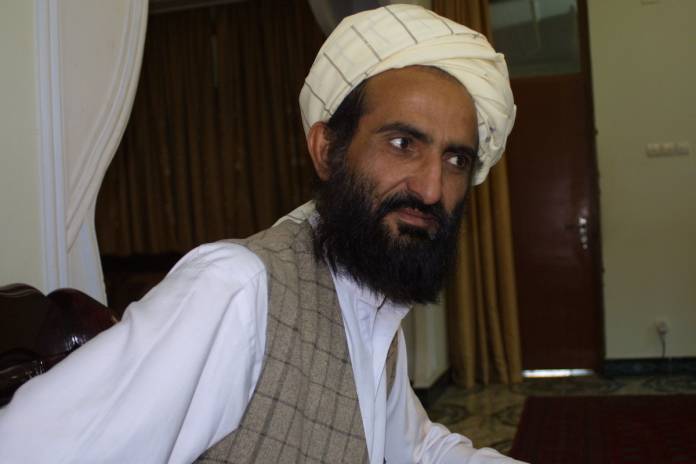
American Psychological Association (APA) policy prohibits members from working for the military in Guantanamo or any site where torture takes place. Now some military psychologists are seeking to rescind that policy during the APA convention, August 9-12 in San Francisco.
The dispute reflects a wider rift in American society on how to respond to the September 11 attacks and the so-called war on terror. While the APA’s immediate debate focuses on whether military psychologists should be able to treat detainees, it’s part of a larger dispute on the use of torture in the age of Donald Trump, according to some APA members.
Dan Aalbers, a psychologist who helped form APAwatch: Alliance for an Ethical APA, tells 48Hills that the APA convention takes place as Trump has vowed to send more prisoners to Guantanamo, and advocated waterboarding during his 2016 campaign.
“We should listen carefully to what he’s said,” says Aalbers.

Sally Harvey, a former Army psychologist who wants to change APA policy, tells 48Hills that federal law and Supreme Court decisions prevent the US for using “enhanced interrogation techniques.”
“The president can say what he wants, but he can’t overcome federal law,” she says. She argues that the current APA debate is not about torture, but allowing detainees access to counseling.
The dispute has simmered for years and creates anger on both sides.
Psychologists and torture
Help us save local journalism!
Every tax-deductible donation helps us grow to cover the issues that mean the most to our community. Become a 48 Hills Hero and support the only daily progressive news source in the Bay Area.
The APA debate goes back to months after September 11, 2001, when two psychologists contracted with the CIA to create the torture program used at secret jails overseas. Other psychologists oversaw torture against detainees held in Guantanamo, Cuba.
After years of debate, in 2015 the APA passed a resolution to prohibit military psychologists from counseling detainees in facilities where international or US law is violated.
In response the Department of Defense (DoD) stopped psychologists from counseling detainees in Guantanamo. Carrie H. Kennedy, a Navy psychologist and member of the APA leadership council, argues that current APA policy deprives detainees of needed psychological help.
“The impact of the resolution was to effectively remove access to psychological care from a vulnerable population, and the abrupt removal of psychologists from that role was akin to patient abandonment,” she writes in a letter to APA leaders.
Supporters of the current policy say the APA allows counseling of detainees if the psychologists are working directly for the detainee or an independent third party such as the International Committee for the Red Cross.
Harvey says the military maintains a fire wall between counseling and interrogation. Detainee medical records are not available to interrogators, she says. If psychologists see detainee abuse, they must immediately report it up the chain of military command. “If you see something illegal, you stop it,” she says emphatically.
Alice LoCicero says, in practice, an insurmountable conflict of interest can occur between medical ethics and obeying military orders. She is president of the Society for the Study of Peace, Conflict and Violence, a division of APA. She offered her personal views in an interview with 48Hills. When uniformed military psychologists counsel detainees, they inevitably end up helping the detaining power more than the detainees, she says.
“Say another country has taken people hostage,” LoCicero says. “It has tortured them and held them without trial for over 15 years. Would anyone believe they would be given optimal care by someone employed by the hostage-taking government? It defies common sense.”
The old rules no longer apply
The APA, like many US institutions, was strongly impacted by the September 11 attacks.
Two American CIA-contracted psychologists devised a widely used the torture program. It included sleep deprivation, slamming people into walls, forcing them into small boxes and waterboarding. Details of the torture came out when detainees sued the psychologists in federal court.
In 2004 the International Committee for the Red Cross (ICRC) inspected the US detention camp in Guantanamo and found evidence of torture. US medical personnel participated in the torture sessions in what an internal ICRC report referred to as “a flagrant violation of medical ethics.”
The issue of psychologist participation in CIA and Army torture came to a head in 2014 when the APA commissioned an outside law firm to investigate the issue. Attorney David Hoffman and colleagues issued a devastating report in July 2015.
The Hoffman Report found that key APA officials worked with both the CIA and DoD to issue ethical guidelines that allowed torture.
Key APA leaders, the report states, “colluded with important DoD officials to have APA issue loose, high-level ethical guidelines that did not constrain DoD in any greater fashion than existing DoD interrogation guidelines. We concluded that APA’s principal motive in doing so was to align APA and curry favor with DoD….”
The report hit the APA like a bombshell. Its Council of Representatives voted overwhelmingly to prohibit psychologists from participation in military mental health treatment of detainees. Some APA leaders and military psychologists filed libel suits against Hoffman and others.
Current policy unfair to the military?
Now military psychologist members of APA and some top leaders are proposing changes that would be a first step to reverse the organization’s firm stand against illegal interrogations, according to critics.
One change would list the Hoffman Report in a less prominent location on the APA web page.
Aalbers opposes any effort to downplay the report. It’s an extremely important document that deserves its prominent display on the web page, he says. “The history of our ethical failures should be the starting point for the reform of APA.”
Psychologist Harvey argues that the report contains many errors and should “be taken off the website and all links to it be disabled. But the second choice is to keep it on the website, or linked to it, but describing it as pending review. Right now you look at the report and think it’s the truth.”
“This is in no way a rollback of APA stand against torture,” she continues. “Criticism of Hoffman Report is not rolling back its stance on torture.”
A second proposal would change APA policy to allow military psychologists to treat detainees at Guantanamo and other sites that violate international or domestic law.
Aalbers expects to defeat the two resolutions if word can get out to the APA membership. “The rank and file members of the APA do not want to return to Guantanamo,” he says.
The APA Council of Representatives is scheduled to vote on the two measures in a meeting August 8 just prior to the Convention opening.
Freelance journalist Reese Erlich’s book The Iran Agenda Today: The Real Story from Inside Iran and What’s Wrong with US Policy will be published in September. Follow him on Twitter, @ReeseErlich; friend him on Facebook; and visit his webpage.

